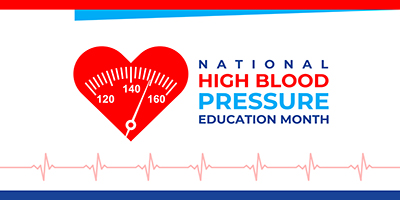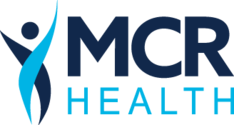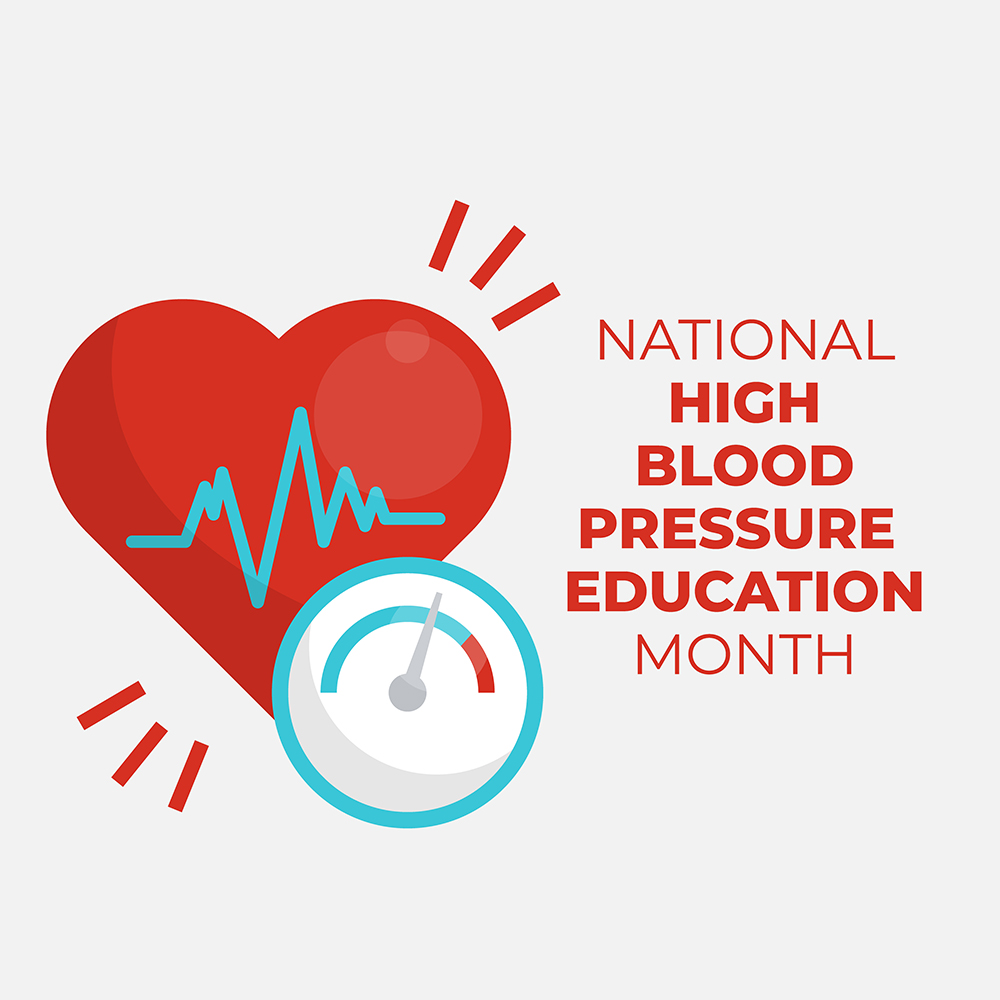
May is recognized as High Blood Pressure Education Month, dedicated to spreading awareness about the condition known as hypertension. With millions of people worldwide affected by high blood pressure, it is crucial to understand the condition, its symptoms, its impact on individuals’ health, and how to manage it effectively. The following article is intended to shed light on the significance of High Blood Pressure Education Month as well as provide important hypertension information.
Understanding High Blood Pressure:
High blood pressure, or hypertension, is a chronic medical condition characterized by elevated blood pressure levels consistently exceeding the healthy range. Blood pressure is the force that blood applies to the artery walls as it flows through them. It is measured in millimeters of mercury (mmHg) and typically recorded as two values: systolic pressure over diastolic pressure (e.g., 120/80 mmHg).
Symptoms of High Blood Pressure:
Hypertension is often referred to as a “silent killer” because it typically presents no noticeable symptoms until it reaches advanced stages. Some individuals may experience headaches, shortness of breath, dizziness, or nosebleeds, but these symptoms are not exclusive to high blood pressure and can be attributed to other factors. The only way to accurately diagnose hypertension is through regular blood pressure measurements.
Who is Affected?
High blood pressure can affect individuals of all ages, genders, and ethnicities. However, certain factors increase the risk of developing hypertension, including:
1. Age: The risk of hypertension increases with age.
2. Family history: A family history of high blood pressure raises the likelihood of developing the condition.
3. Lifestyle choices: Unhealthy habits such as poor diet, lack of physical activity, smoking, and excessive alcohol consumption contribute to high blood pressure.
4. Existing medical conditions: Conditions such as obesity, diabetes, kidney disease, and sleep apnea are associated with hypertension.
5. Ethnicity: Certain ethnic groups, including African Americans, are more prone to developing hypertension.
By the Numbers:
High blood pressure is a global health concern. Consider the following statistics:
1. According to the World Health Organization (WHO), an estimated 1.13 billion people worldwide have hypertension.
2. In the United States alone, nearly half of adults (approximately 108 million people) have hypertension.
3. Hypertension contributes to 13% of global deaths annually.
4. Hypertension is a significant risk factor for cardiovascular diseases, including heart attacks and strokes, responsible for 45% of deaths from heart disease and 51% of deaths from stroke globally.
Observing High Blood Pressure Education Month:
High Blood Pressure Education Month provides an opportunity to raise awareness about the importance of blood pressure management and the potential consequences of uncontrolled hypertension. Here are some ways to observe the month:
1. Education and information dissemination: Organize workshops, webinars, and seminars to educate the public about hypertension, its risk factors, and effective management strategies.
2. Screenings: Collaborate with healthcare providers and community organizations to offer free blood pressure screenings at various locations, such as clinics, community centers, and workplaces.
3. Awareness campaigns: Utilize social media platforms, newsletters, and local media to promote information about hypertension, prevention, and management techniques.
4. Support groups: Encourage the formation of support groups to provide emotional and educational support to individuals living with high blood pressure.
MCR Health’s Commitment to Care:
MCR Health recognizes the importance of High Blood Pressure Education Month and is dedicated to the care of hypertensive patients. Regular screenings, accurate diagnosis, and personalized treatment plans are all priorities for our healthcare professionals when it comes to blood pressure management. We work hard to educate our patients about lifestyle changes, medication adherence, and the importance of regular check-ups in order to effectively manage high blood pressure and reduce the risk of associated complications.
High Blood Pressure Education Month serves as a crucial reminder of the importance of understanding and managing hypertension. By spreading awareness, promoting education, and providing support, we can empower individuals to take control of their blood pressure and lead healthier lives. Let us utilize this month to prioritize our cardiovascular health, encourage regular check-ups, and make lifestyle choices that contribute to maintaining optimal blood pressure levels. Together, we can combat the silent epidemic of high blood pressure and promote a healthier future for all. If you believe you or a loved one may be suffering from hypertension, please contact us right away to schedule an appointment.

